Marcia Thornton Jones's Blog, page 36
February 28, 2023
Tick, Tock, Time's Up!
by Charlotte Bennardo
They say you can't have it all; wealth, fame, health, achievements, and happiness. We see someone who appears to have all of these, but do they really? From outward appearances, we wish we could be them.
But we can't. We have to be us, play the 'cards' of life that we're dealt. Sometimes we can overcome obstacles, other times we can't. And sometimes we have to sacrifice.
 Photo by Andrey Grushnikov, Pexels
Photo by Andrey Grushnikov, Pexels
I would think for most writers, the greatest sacrifice we make is time. We give up writing time for jobs, family, chores, and other time-suckers of things that must be done. And, we sacrifice time with family, friends, household and other chores for writing time. Currently, I'm sacrificing both ways- time with family and friends, household, AND writing- to finish my Master's degree. I could be writing books--but I'm writing papers. I could be attending writing workshops, but I'm reading textbooks. I could be subbing novels to editors, but I'm learning corporate marketing (part of the curriculum because of the professional writer certification attached to my degree). Balancing how much time we have, because time is a finite resource, is the tricky tightwire that writers must walk.
I graduate at the end of June and now that life is returning to normal as events and places open back up, not that getting my degree was a waste of time (lifetime goal achieved), but I feel like I'm behind time, I need to be more efficient and work harder to catch up in my publishing career because I haven't subbed out, written, or revised any books (well, except for my thesis novel) since I started my degree in 2021.
 Photo by energepic.com, Pexels
Photo by energepic.com, PexelsAs my children move on with their lives, it may seem as though I have more time; but our lifespan is only so long. I have so many stories to tell. Will there be enough time to tell them all? We always question if we could have spent ourtime more wisely. Since we can't recapture time, the only thing to do is try not to sacrifice the amount we have onthings that aren't important.
So now that I've finished my post, I'm going back to writing and revising- coursework. My novel writing will have towait until it's the right time.
Charlotte writes MG, YA, NA, and adult novels in sci fi, fantasy, contemporary, and paranormal genres. She is the author of the award-winning middle grade Evolution Revolution trilogy, Simple Machines, Simple Plans, and Simple Lessons. She co-authored the YA novels Blonde OPS, Sirenz, and Sirenz Back in Fashion. She has two short stories in the Beware the Little White Rabbit (Alice through the Wormhole) and Scare Me to Sleep (Faces in the Wood) anthologies. Currently she is working on several novels for both children and adults, and her MFA. She lives in NJ with her family and her floofy cat. When they trimmed the backyard tree, the crazy squirrel couple had to move out.
February 25, 2023
The Secret of Success (Holly Schindler)
 Fun fact: I've never been financially stable. Not one year in my entire adult life.
Fun fact: I've never been financially stable. Not one year in my entire adult life. I've scraped by. Some years, the years I considered windfalls, were still relatively slim. Others, I never would have made it without help from my family.
I live in the home I grew up in, with other family members. I share a car. I don't go on fancy vacations. Or eat out. Or get my hair done.
Is this a sacrifice?
It's supposed to be. But I don't feel as though I'm missing anything. I don't get excited by designer handbags or flights to Hawaii. I get excited by tools of the trade (and every year, it seems as though I need another subscription to another piece of software for formatting or design or some other aspect of book creation).
What I've struggled with over the years (the lede's buried a bit here), is the question of whether this is success. We've all been conditioned to consider one's finances as the true indicator of success. If it's in the bank, your idea worked. Congratulations. We're told that our main goal--or perhaps the only goal--is income. An accumulation of wealth. Anything that doesn't pay out wasn't worth our time. And, by extension, if it isn't already popular, I, as a consumer, shouldn't be interested in it, either. Because monetary success = good. (This attitude obviously helps to keep unknowns from breaking out and making that oh-so-precious money, of course.)
In 2016, I saw two different books release from two different Big 5 publishers. My writing take-home that year? Four figures. (It's important here to note that's not the full amount I made on those books--but because of how advances are divided up, that's what I made that year.) That line of reasoning didn't help relieve the disappointment, though. And I would be lying if I said it wasn't a disappointment. Something I felt should be hidden away, not admitted to.
In the years since, I've felt myself letting go of these feelings. Not because I was trying to. They just slowly dissipated. The same way I felt myself letting go of checking on my online stats every two seconds. My dream was to become a writer. By hook or crook, I am a writer. I get up every single day and immerse myself in stories.
What is that, if not success?
There will always be people who buy into the idea that monetary success is the only success. Often, these are people who are happy to share what they make each year--because they're proud of it. They aren't having four-figure years. They have new cars and pictures of Hawaii. That's fine. It's not wrong. It's their definition. It just doesn't happen to be mine.
My definition (I've said this so many times the last few years) is, simply, this: Success is getting your teeth kicked in and then getting back up the next day and putting your heart into your work all over again, with the same passion and enthusiasm you felt the day before. Not letting the outside world convince you what you're doing isn't worthy of your time. Holding on to your passions, even when other people think it's foolish.
That's it.
Because the thing is, I don't have to live up to anyone else's definition of success. Only mine.
The same is true of you--you only have to live up to your definition.
That, it seems, is the true secret of success.
~
Holly Schindler is the author of books for readers of all ages. Her MG, The Junction of Sunshine and Lucky, was a Mark Twain Nominee.
February 23, 2023
A New Way Out? Smack Dab in the Imagination by Dia Calhoun
Wit is defined as an intelligence, often related to word usage. But do we usually consider imaginative abilities as part of a keen intelligence? Do we think of imaginative skills as their own kind of intelligence? We have the idea of emotional intelligence, so why not imaginative intelligence? Or let’s flip it—intelligent imagination, which all artists know is essential for crafting a sustained work of art.
With all the political, social, and environmental traps we are stuck inside of now, we need all the imaginative intelligence we can muster to get out of them.
February 21, 2023
Interview with Sydney Dunlap, author of It Happened on Saturday
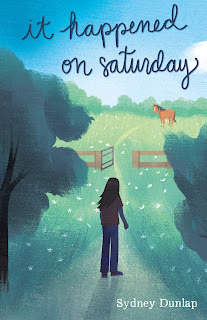
Short and Sweet: Hit us with the elevator pitch for It Happened on Saturday:
This is the story of thirteen-year-old Julia, who nearly becomes a victim of human trafficking and must find the courage to tell her friends what really happened so none of them become victims too.
Why this particular subject? In the Author’s Note, you indicate you’re part of the anti-trafficking movement. How did you get involved?
I was an elementary school teacher in Virginia when I saw a movie about human trafficking that involved children who were the same age as my students, and I immediately knew I wanted to join the fight against this horrible crime. Not long after that, my husband’s company transferred us to Houston, which happens to be a trafficking hub. I began volunteering with local anti-trafficking organizations right away and became a community outreach leader for one of them. An aspect of this involved presenting a monthly trafficking awareness and prevention program to tween and teen girls in a Houston juvenile detention facility, then talking with survivors and connecting them with needed resources. As I was going through training to present the program, I learned that eleven-to-fourteen-year-olds are especially susceptible to being lured or forced into trafficking, and I realized there was very little written on this topic for middle-grade readers. That’s why I decided to write a novel that would be kid-friendly and age appropriate, while introducing this subject matter to young readers before or during the time they were most vulnerable to this happening to them.
I loved the fact that you included so many friendship scenes, filled with complete normalcy. Was it hard to balance the normal and the definitely abnormal? Did it ever seem to mess with the tone of the book? Or did that all come naturally?
I'm glad you enjoyed the friendship scenes! I had a lot of fun writing them, as well as the scenes at the stable. For me, balancing out the difficult parts of the story with relatable, everyday tween situations was part of the fabric from the very beginning, so it felt like it happened pretty organically. Also, I am part of a weekly writers' group that includes seven wonderful and supportive women who were very helpful to me as I worked on this. All of us are longtime SCBWI members and conference organizers or volunteers, and we've each studied the craft of writing for years. The feedback I got from sharing my work with them and other friends and family members as I went along kept me on track!
In the book, I thought it was especially powerful for the messages with Tyler to start when she was feeling especially vulnerable / feeling like she was losing her friend. Those lines “He was still thinking about me” and “at least someone wanted to talk to me” hit hard. I imagine this is pretty common? For people to get hauled into trafficking situations during times of vulnerability?
Absolutely! Traffickers are sometimes called street psychologists because they quickly figure out what a person is looking for—perhaps a father figure, a friendship, or a romantic relationship—and trick that person into believing they will fill that void. In addition to Julia being especially vulnerable because of the difficulties with her best friend, the isolation she felt within her family was also part of the problem. Traffickers and recruiters are looking for people who are unhappy at home, so when Julia mentioned that her parents weren’t around much and made other negative remarks about her mom, Tyler got the idea that it could be worth his time to pursue her.
I also found my stomach twisting in knots as you depicted how the situation progressed with Tyler: crossing over into real world meetings, for example, and the way you depicted how the messages continued when the rest of the world felt crummy. Tyler was the one place things felt good or fun. The line “Horses always remembered how people had treated them before” really resonated for me. Julia was remembering how Tyler had treated her, and was growing ever closer. I also liked that after it was all over, Julia’s friends agreed: “He looked like a regular dude.” Are there some common red flags young readers should be aware of when interacting with anyone online?
I’m so happy to hear that the horse references resonated with you. I thought it was important to draw parallels between Julia’s experiences at the barn and what was going on in other aspects of her life. As far as red flags, first and foremost, any time someone says to keep a relationship a secret, that is cause for concern. When Tyler asked Julia not to mention him to her family, that was a huge sign that he was up to no good, but he twisted it around to make it look like he was protecting her from getting in trouble. Other warning signs include a person making excuses for why they can’t meet your family or friends, or promising something, especially if it sounds too good to be true. As Danielle warned Julia, “Anyone can say anything online.”
How did you decide how far to take the subject matter with this age group?
As a mom, I thought about what I’d be comfortable having my kids read when they were in middle school. Also, although I’m no longer teaching full-time, I still tutor young people, and I thought about how to take them on Julia's journey in a way that would be relatable and age appropriate. I wanted them to experience what happened along with Julia to see how easily trafficking can occur, but I thought it would be best to take it to the point of her being captured and having to escape, without it going further. The book is targeted for readers between the ages of ten and fourteen, and I wanted those on the younger end to be able to understand the risk without having to read about something that could quite possibly be too much at their age. That’s why I shared the story with two beta readers who were in middle school and discussed the events with them to make sure they understood the need to be careful without becoming frightened.
This book has a slightly different structure in that it doesn’t end with the protagonist being freed from danger. Instead, the rescue happens at the mid-point, and there’s almost a second story here, and to a great extent, it involves healing and facing the traumatic event. Why was that important to you to include this?
I think that the loneliness Julia experiences, and the danger she falls into, leading to her escape, are only part of the story. For me, her arc would not be complete without the change and growth that occur as she allows herself to acknowledge what happened and ultimately realize that an important part of her healing is doing what she knows to be right: risking the new-found friendships that are so important to her by telling the other girls the truth. In taking that chance, she is confronting her biggest fear and choosing to move forward. Additionally, I wanted to include the counseling scenes in hopes that they would be accessible to readers working through their own traumas.
What do you want kids to get from this book, more than anything?
Most important would be a growing awareness that will help them make the best possible decisions, especially as they go online or use social media.
Julia’s story provides a kind of roadmap for young readers–showing them how easy it is to fall victim to trafficking, how quickly everything can change. And also showing them (through Julia) how to get back out quickly. What can a young reader do if they suspect someone else has been or is in danger of being trafficked?
Julia was very fortunate to be able to get away when she realized what was actually going on. The fact that she only pretended to drink what Tyler offered her made a huge difference in her ability to escape. And she was also fortunate to have a quick way out through the balcony. Sadly, many young people who are tricked into going somewhere with a trafficker or recruiter are not in a situation where they can get away as Julia did.
If trafficking is suspected, I think the most important thing is to tell someone right away. A trusted adult can help the person, and depending upon the circumstances, contact the National Human Trafficking Hotline at 1 (888) 373-7888, for assistance, or call 911 if it’s an emergency situation. Trafficking survivors need a high level of care and there are many anti-trafficking groups that can help in that process. A nonprofit organization called Thorn builds and shares technology to protect children online, and their website offers a list of local anti-trafficking organizations in all fifty states: https://www.thorn.org/blog/support-trafficking-survivor-organizations/
Where else can kids (or teachers, parents) go to learn more about trafficking?
The Polaris Project operates the National Human Trafficking Hotline and its website https://polarisproject.org/human-trafficking/ offers much information about trafficking. Two other groups are Traffick911 https://www.traffick911.com/ and United Against Human Trafficking https://uaht.org/.
What’s next for you?
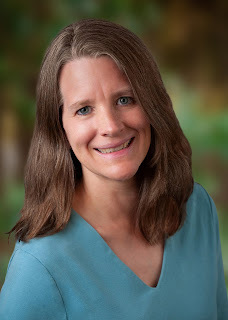
After its release, I'm hoping to share It Happened on Saturday as part of a multi-media presentation in schools. Many districts now mandate anti-trafficking curriculum for students, and I'd love to be involved with helping kids understand the risks so they can make well-informed decisions.
As far as future projects, since my favorite books to read and write are heartfelt, hopeful middle grade novels that grow readers' awareness of difficult topics, I'm working on another book that will hopefully belong in that category. I'm still figuring out the details, but it's coming along! I love trying different things creatively, and I've also got some potential picture books in the pipeline, including a narrative nonfiction story that I’m co-authoring with a friend, one that’s fiction with lots of wordplay, and maybe even a spooky story!
Thank you so much for highlighting It Happened on Saturday! It’s an honor to have my book featured here, and I really appreciate your kind words and thoughtful questions!
~
Follow Sydney and order It Happened on SaturdayFebruary 19, 2023
Writing Superstitions, Magical Thinking and Habits
While I always consider Writing my first, one, true love – and penned many things as a child and teenager and then as a young woman as a journalist – I didn’t take the risk of attempting to write a novel until I was in my late 20s.
My journalism career was being curbed by my uncurable illness. I felt cornered. Suddenly, I found myself at home more often, some days unable to drive or walk or even see properly. Driving and chasing deadlines 24/7 was slowly becoming something I could not do.
I started writing a book not just out of love for wanting to be an author, but a little bit of spite towards my Multiple Sclerosis (MS). I could only work when the MS cooperated, but thankfully treatments, meds and diet helped slow and quiet my symptoms some of the time.
Writing can be considered solitary, independent, even lonely. At my side or at my feet, however, was my cat, Boots. Boots came into my life as a kitten only a few weeks old. His mother had died on the road, unintentionlly leaving him alone and sick. I raised him by bottle and my own body heat. He healed in months, and became my little shadow. It was Boots who would be with me for the next 15 years.
I have never written an entire novel without Boots.
During those years, we saw the publication of The Great Cat Nap, a middle grade mystery based on a cat much like Boots. We also saw the sequel, The Clawed Monet. There were/are a number of manuscripts in a computer folder, as well.
As I revise my book now for my agent, it’s hard not to remember that Boots was with me the first draft it ever was. There are times I feel I won’t make it if I don’t have him. That I will fail.
It’s superstitious, of course, and not at all true. I know Boots is with me in spirit, by my legs when I write, by my shoulder when I type bad sentences that he quietly judges.
Maybe it’s more hocus pocus, but I truly believe Boots guided me and my husband to adopt Emma. I never thought I’d have another cat again after Boots. But Emma climbed her way – literally – into my arms and to my heart. She is less supervisor-ly as I work now than my prior feline buddy. Mostly she likes to jump up and examine my keyboard, steal a pen and settle on the windowsill. And maybe it’s magical thinking that both Boots and Emma keep me company as I try to write full novels again.
Happy reading!
AM Peaslee

 Boots, top; Emma, bottom (Photos by AM Peaslee)
Boots, top; Emma, bottom (Photos by AM Peaslee)
February 16, 2023
Money Isn't Everything
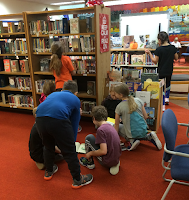 You don't become an elementary school librarian - at least in my town - because you want to make money. You do it for the love of kids and the love of books and the peculiar joy that comes from connecting just the right kid with just the right book. The teachers make a lot more money than we elementary librarians, because we are not certified teachers, and they are. Some districts require their librarians to have certain degrees; ours, as a cost-saving measure, does not. If we aren't certified, they don't have to pay us as much. That being said, we manage to have a group of very excellent, dedicated 'library media associates' (our official title), and people who don't love it and aren't good at it, don't stay long. To do the job I love, I definitely sacrifice the opportunity to make a lot more money somewhere else. My husband has noticed.
You don't become an elementary school librarian - at least in my town - because you want to make money. You do it for the love of kids and the love of books and the peculiar joy that comes from connecting just the right kid with just the right book. The teachers make a lot more money than we elementary librarians, because we are not certified teachers, and they are. Some districts require their librarians to have certain degrees; ours, as a cost-saving measure, does not. If we aren't certified, they don't have to pay us as much. That being said, we manage to have a group of very excellent, dedicated 'library media associates' (our official title), and people who don't love it and aren't good at it, don't stay long. To do the job I love, I definitely sacrifice the opportunity to make a lot more money somewhere else. My husband has noticed.If you were a fly on the wall at my house, at least once a month you'd hear a conversation that goes something like this:
Me: 'Well, we can't afford that.'
Husband: 'I keep telling you to go get your teaching certificate, then you'd be making twice as much.'
Me: 'But I don't want to be a classroom teacher. I love my job.'
Husband: 'It's practically the same thing!'
No, dear husband, it is not. As the school librarian, I am like the grandma of the school. I get the very best of the kids. Most of them love coming to library, and I get a lot less negative behaviors because of that. They come in, I read to them, teach them something about libraries and literature, connect them with books they will love, and then send them home to 'mom.' That's not to say I don't ever have to deal with negative behaviors and surly kids, but I get a lot less of it than the classroom teachers do. I don't have to make lesson plans unless I have a sub. I don't have to grade papers. And when there are no kids in the library I work with the books. Crafting a balanced and well-used library collection is no small task, and I'm dedicated to making it happen.
I feel very fortunate that I'm able to do what I do without a teaching degree or a Master of Library Science. Personally, I would love to get an MLS. I'm all about continuing education, but another peculiarity of our district is that getting the degree will not earn me a penny more in my current position. And they don't give out Master's degrees for free, so if it's not going to help me make more money, I can't see spending time and money that I don't have to do it.
I'd love to make more money. Who wouldn't? But the fact is, adults spend most of our waking hours at our jobs. Loving that job makes it so much easier to get up and go to work in the morning, especially when it's February, and it's getting lighter, but it's still wicked cold and it feels like winter will never end. I get to come every day to this oasis of books and children and learning and it brightens my world. I know it's important to make a living, but even more important is making a life that you enjoy living. My job brings me that.
February 14, 2023
Perhaps to Dream
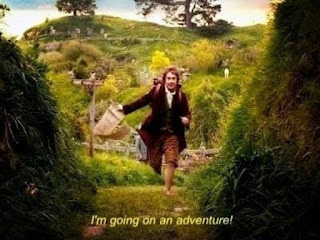
“It's a dangerous business, Frodo, going out your door. You step onto the road, and if you don't keep your feet, there's no knowing where you might be swept off to.” -- J.R.R. Tolkien
This month, as we continue to explore the meaning of sacrifice, we contemplate what we sacrifice to find time for our writing. Sacrifice, by definition, means the slaughtering of an animal, or a person, or surrendering a precious possession to the divine.
However, allow me to offer a different perspective. As Mary Karr (The Liar’s Club) offers,
“I write to dream; to connect with other human beings; to record; to clarify; to visit the dead. I have a kind of primitive need to leave a mark on the world.”
I tend to think that the sacrifice moves in the other direction. We sacrifice our writing in order to pay the bills, to raise a family, to be with friends, to live in a world that tends to downplay the arts. And worse, too often we define ourselves not by our writing, but by what others think of our writing.
In other words, we tend to sacrifice the divine – our writing – for something more mundane.
As William Kenover, in his book Fearless Writing (Writers Digest Books, 2017) reminds us, self-doubt runs rampant in creative work because of the nature of the creative. The reality is, if one has any aspirations to be a published writer, they need the validation of others. This validation comes in the form of good reviews, awards, contracts. It also comes from friends and family. But – allow my honesty – relationships are complex even in the best of times. Family may not always understand this need to connect, to use Mary Karr’s word. However well-meaning, families can make one feel guilty for taking the time to write. They may not understand the sting of rejection, and therefore minimize your feelings. Friends can be just as demanding, and just as minimizing. Julia Cameron (The Artist’s Way, 1990) calls them the crazymakers, persons who ultimately have no respect for your work.
But too often writers do their own worse crazymaking. Writers need to write for the reader, taking into account how the reader approaches the text. Which means, by implication, writers need to write for others, not themselves. But writing, as a process, often stems from a very personal, even emotional understanding of the narrative. It's the oxymoron of writing. And when it doesn't work, when a writer doesn't get the validation, it becomes an exercise in self-flagellation.
The reality is, the business of writing is the most impersonal place, more so that other businesses. It's exceptionally transitory: editors are constantly leaving, publishing houses are merging and collapsing. New houses rise out of the ashes. Agents quit. The internet, and the popularity of self-publishing, complicates the business all the more.
Working in the creative is challenging because, unlike science and other industries, there are no rules to follow. Writers dwell in the abstract. Market analysis reveals some things that work effectively: understanding tropes that define each genre, understanding the targeted audience, and so on. But even then, there are exceptions. And trends are always shifting. Some writers do everything right, and never get published. Others break every rule and get a six-figure deal.
Ultimately, it becomes a matter of faith. Sometimes you can't predict the outcome, but you need to have faith in your story. Sometimes you need to be reminded to keep the faith. Perhaps the sacrifices that need to be made are less about the metaphorical slaughter, and more about keeping the dream. You have to pay the bills, but you don’t need to play along with the crazymaking. Sometimes, letting go is not the end of anything, but just the beginning of a great adventure.
Take hope, states Christopher Vogler (The Writer’s Journey, 1992),
“... for writing is magic. Even the simplest act of writing is almost supernatural…We can make a few abstract marks on a piece of paper in a certain order and someone a world away and a thousand years from now can know our deepest thoughts. The boundaries of space and time and even the limitations of death can be transcended.”
--Bobbi Miller
Teaching is a work of "heart" -- by Jennifer Mitchell
As a child I knew that I wanted to be a teacher when I grew up. Everything from bonding with the students, sharing my love of literature, fancy pens for grading, colorful stickers, you name it and I was all in. I don’t consider much of anything I do as a sacrifice picking this profession. I feel a sense of satisfaction when I tell others that I am a teacher, not everyone gets to work in the profession that they dreamt of as a child.
When I spend my own money for my students, it is a decision, nothing I feel obligatory in any way. Time spent in the evening grading or planning lessons just comes with the territory. I will say the older I get, the longer I am in the profession, sometimes mentally it takes a toll. When you work with children their world meshes into yours. When their parents separate or get divorced and the student is struggling you take that home with you at night, trying to figure out a way to help that student. When their house floods and they are relocated to a hotel for several months, you mentally try to figure out how to help that displaced student. Sometimes the unimaginable happens, you learn a student's parent has passed over the weekend. I am fortunate enough that I haven’t experienced the loss of a parent, so at times I am out of my element trying to comfort students in their times of need. When you go to college your university prepares you for growing kids academically, they don’t prepare you for the nightly baggage you take home with you trying to help kids emotionally. I always want to help support my students, but at times I don’t feel adequately prepared for the challenges they face. When they have outside challenges I can’t imagine how difficult it is to come to school and learn. As their teacher I will continue to strive to meet their needs even when I feel inadequate at times.

Teaching is a work of "Heart"
Jennifer Mitchell - 3rd grade teacher in the Kansas City area
February 12, 2023
The True Meaning of Sacrifice by Darlene Beck Jacobson
In keeping with the theme this month of what we sacrifice to find time for writing, I am reminded by recent articles of the importance of words and their true meanings.
The OXFORD Dictionary defines sacrifice as: NOUN: an act of slaughtering an animal or person, or surrendering a possession as an offering to God or to a divine or supernatural figure. VERB: offer or kill as a religious sacrifice. To die in order to help someone else. (Soldiers do this all the time. So do organ donors.)
Biblically sacrifice means: "giving to the Lord whatever He requires of our time, our earthly possessions, and our energies to further his work." This can be extended to personally giving up something you want to do for a greater good or the good of others (giving a sick day to a colleague who needs it more than you, even when you have already planned for that non-office day)
An unselfish giving over.
What are we sacrificing every time we put pen to paper to find time to write?
Are we being UNSELFISH when we choose writing over other things?
Are we contributing to a greater good by leaving something important behind in the form of our stories?
I leave it to you to answer these existential questions. I personally think SACRIFICE is too strong and potent a word to use for finding time to write. Can anyone offer me a better one?
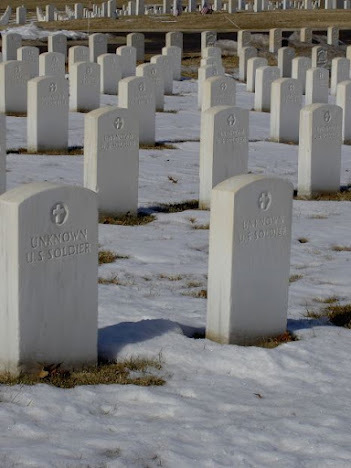
February 11, 2023
Sacrificing Danny ... by Jody Feldman
In the 1st, 2nd, and 30th revisions of my first MG novel, The Gollywhopper Games, there was Danny.

A grad student who lived next door to Gil, the main character, Danny was the person Gil hung out with after school. Danny was the one who listened to him when his parents were dealing with other problems. Danny was Gil’s only friend and his soft place to fall. As it turned out, though, Danny had to be sacrificed to the gods of the 31st revision.
First thoughts of his impending demise came from a less-than-usual source: a rejection letter. The legendary editor who took time to write me a full page, well-reasoned response said, point blank, that Danny was problematic. It's not important, now, why she said that. What is important, begrudgingly, she was right. By killing off Danny and needing a different adult to fill the void, I was forced to dive deeper into Gil’s relationship with his father. And it made the book that much better.
As for poor Danny? Yes, his sacrifice was necessary but it’s not so easy to kill your darlings, especially when those darlings are beloved characters. So, while Danny is no longer someone Gil knew before, he exists in cameo roles in all three Gollywhopper Games books. Even so, I'll always miss the special bond those two had... and in revealing Danny’s fun secret, which may, forever, remain with me. Or maybe not.
Now that Jody Feldman is writing another thriller, she finds she must sacrifice characters all the time. But now, she’s letting the evil people in her stories do the job.



